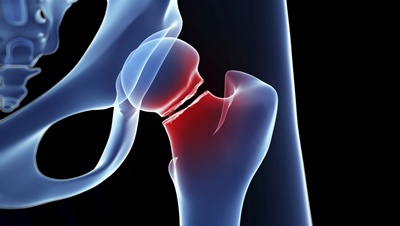
As we get older, and our bodies start to wear down, you might find yourself more concerned about falls and injuries. And when it comes to fracture risk, we all know that finding methods to prevent one is a lot easier than treating one after it happens. Research published in the British Medical Journal suggested that the use of vitamin D was not necessary and studies haven’t revealed any benefits whatsoever.
There has been some contradictory evidence regarding the use of vitamin D (which usually comes in your calcium supplement) and the prevention of osteoporosis. No one wants osteoporosis, to be sure: It’s a common bone disease with the aging population that predisposes people to fractures.
While there is nothing wrong with developing an understanding about the effects of nutrients, exercise and hormones on your bones, the real issue at hand here is fractures! A hip fracture in an elderly person can have detrimental effects, including a long recovery and the loss of independent living.
So we need to know what supplements can have an impact on fracture rates in hopes of reducing the potential for them in our elderly population.
Bone Up with Vitamin D
So the million-dollar question is this: Does the use of vitamin D decrease the risk of experiencing a fracture as you continue to age? Some recent research may hold all the answers, and goes completely against what the British Medical Journal reported.
New research from Sweden shows that low blood levels of vitamin D in elderly women can significantly increase the risk of suffering a hip fracture.
For this study, 987 females over the age of 75 were evaluated with their bone mineral density, fracture incidence, history of falls and blood levels of vitamin D analyzed over a five-year period. The subjects were then followed for 10 more years when their age-related risk of developing a fracture was determined.
Low blood levels of vitamin D remained low through the five-year follow-up period and the same women had a greatly increased fracture risk at the end of the 10-year follow-up.
Vitamin D Sufficiency Crucial for Bone Health, Experts Say
According to the study author, Dr. Kristina Åkesson, from the Clinical and Molecular Osteoporosis Research Unit in Malmö, Sweden, these research findings suggested, “In the population sample of elderly women, vitamin D insufficiency sustained over five years was associated with increased 10-year risk of osteoporotic fracture.”
Another expert, Dr. Andrea Singer, director of the National Osteoporosis Foundation in the United States also commented on the research noting these new results, “Reinforce the importance of vitamin D deficiency and insufficiency in the setting of fracture risk.” She also says, “Those of us who care for elderly women with osteoporotic fractures have long felt that vitamin D sufficiency is important for bone health, and that deficiency or insufficiency increases the risk of fracture.”
Results are in: Vitamin D Required for Decreased Fracture Risk
But the results speak for themselves: Vitamin D deficiency is directly associated with the increased risk of hip fracture. Elderly women who had the lowest blood levels of vitamin D had a 21% increased risk of fracture over the 10-year follow-up period.
To see some real tangible results with vitamin D supplements, they need to be used properly and for the right amount of time. The dosage should be at least 1,000 IU of vitamin D per day and must be combined with a very absorbable form of calcium at 1,500 to 2,000 mg daily dosage.
These supplements need to be used for several years combined with weight-bearing exercise before any substantial changes to bone architecture and subsequent fracture risk are noticed. But in the name of good bone health, they are certainly worth it!
Related:
Sources:
MacReady, N., “More Fractures Seen When Vitamin D Is Consistently Low,” Medscape website, April 21, 2014;http://www.medscape.com/
“World Congress on Osteoporosis, Osteoarthritis and Musculoskeletal Diseases. Abstract OC19,” Osteoporosis International2014; 25(Suppl 2), presented April 4, 2014.













